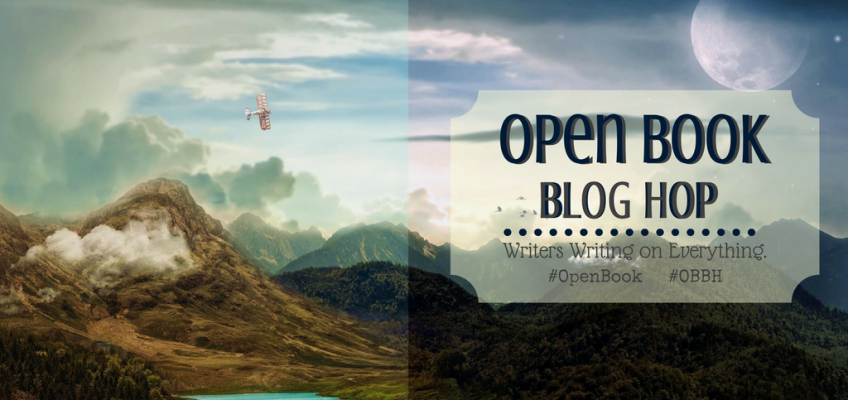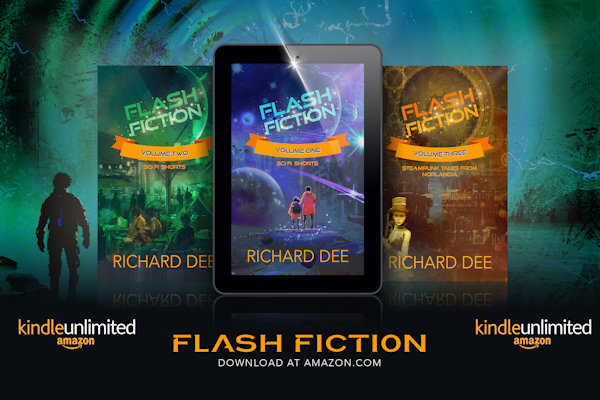Welcome back to another blog hop, with #OpenBook. Here’s this week’s prompt.
Don’t forget to click the purple button to see what everyone else has to say on this week’s subject. It’s at the end of my post.
Do you ever write short stories? What do you see as the biggest difference in the writing process between a short story and a full-length book?
As well as my novels, I’ve written over fifty short stories and flash fiction pieces. Some of them were ideas for longer stories that never developed, some are complete and need nothing more while others have been the basis of novels and even series.
The trouble is, I never know when I start writing which one of the above my words will end up being. I’ve never set out to deliberately write a short story, I’ve always just written and waited to see where it goes.
You can grab a few of my short stories for free by clicking here.
My short stories are contained in these three volumes, there are also a few which are scattered around in various anthologies. They often feature as giveaways in my newsletter. Click the picture to go to the Amazon sales page.
To illustrate what I mean about a short story leading to more, my amateur detective Andorra Pett now has a six-part series that started out as a short story. And there are plans for a seventh part, as well as a spin-off series.
The short form gives any writer a chance to try new ideas and styles, even a genre change.
You can experiment and see what works, develop characters and settings, try a different point of view, whatever takes your fancy.
You can use them as a showcase for a new character, a chance to provide more depth to a series, a reward for your newsletter subscribers or as a way of introducing new readers to your work.
But, there are important considerations, despite the logical assumption that they are just stories of different lengths, the short and long forms are completely different.
In a novel, while you still need action and interest from the first page, you have time to set a scene. You can let the reader get comfortable in the world you’ve created. In a short story, every word has to earn its place and you need to be up and running with action from the start. The plot needs to move a lot quicker; backstory and setting are pared right back and the emphasis is placed on keeping things moving.
Which is not to say that there shouldn’t be depth, I suppose my ultimate aim in a short story would be to bring a planet to life in three sentences, by giving the reader enough in them to let them visualise the rest on their own.
This brings us neatly back to the idea that every word has to have a purpose.
Not only that, your short story needs an instant conflict and an ending that will guarantee resolution. If possible, there needs to be as big a twist or shock as you would get in any novel.
Until next time.

Let me know what you think about this week’s subject.
I’d love to get your comments, please leave them below. While you’re here, why not take a look around? There are some freebies and lots more content, about me, my writing and everything else that I do. You can join my newsletter for a free novella and more news by clicking this link.
Now see what the other blogs in this hop have to say by clicking below.
Check out the other great blogs here.

![]()




sally cronin
I do think that for me now, at this stage in my life and writing, short stories fit better than novels. I write non-fiction books more than fiction anyway which I enjoy, but combined with the blog, poetry and putting together another short story collection for the end of the year I have enough going on.
Richard Dee
My first written piece was a short story. I thought my second would be the same but it just kept getting longer.
Stevie Turner
Some of my stories have started out as novels but ended up as short stories, and vice versa. I never know how they’re going to end.
Richard Dee
I leave it up to the voices in my head. They decide when the piece is finished.
Samantha J Bryant
It’s often that way for me, as well. I have a spark of a new idea, but I don’t know until I get going if I have a piece of flash fiction, a short story, a novella, a novel, or a series on my hands.
Richard Dee
Isn’t it an exciting journey? Anyone who isn’t a writer doesn’t seem to understand, just how dependent I am on the whim of the voices in my head.
Lela Markham
I don’t know that I’ve ever written a short story that wasn’t part of a writing prompt. I enjoy the process, but that’s not what excites my muse or whatever you want to call it. I once tried to follow Bradbury’s advice to write a short story a week for a year to improve your writing skills, but the stories I produced always grew longer than a short. Either that or they weren’t a compelling enough story to share with strangers. Like you, I’m driven by my characters telling me their stories, so it may be they deserted me for trying to limit them. They can be fickle that way.
Richard Dee
My characters are fickle too, I can wait for ages to get the next part of any story. Meantime, half a dozen new ideas will pop up.
Daryl Devore
Unless limited with my word count – by an outside source – I never know if my book will be a novella or a 3 part series.
Tweeted.
Richard Dee
I’ve only ever written two pieces where I’ve had to work to a limit. It’s not as enjoyable as letting the words flow.
P.J. MacLayne
The often-asked question about how long a chapter should be is almost the same as asking how long a story should be. The answer being as long as it takes, as we authors often don’t know where the end is until we get there.
Richard Dee
Exactly this, it’s finished when it’s finished.